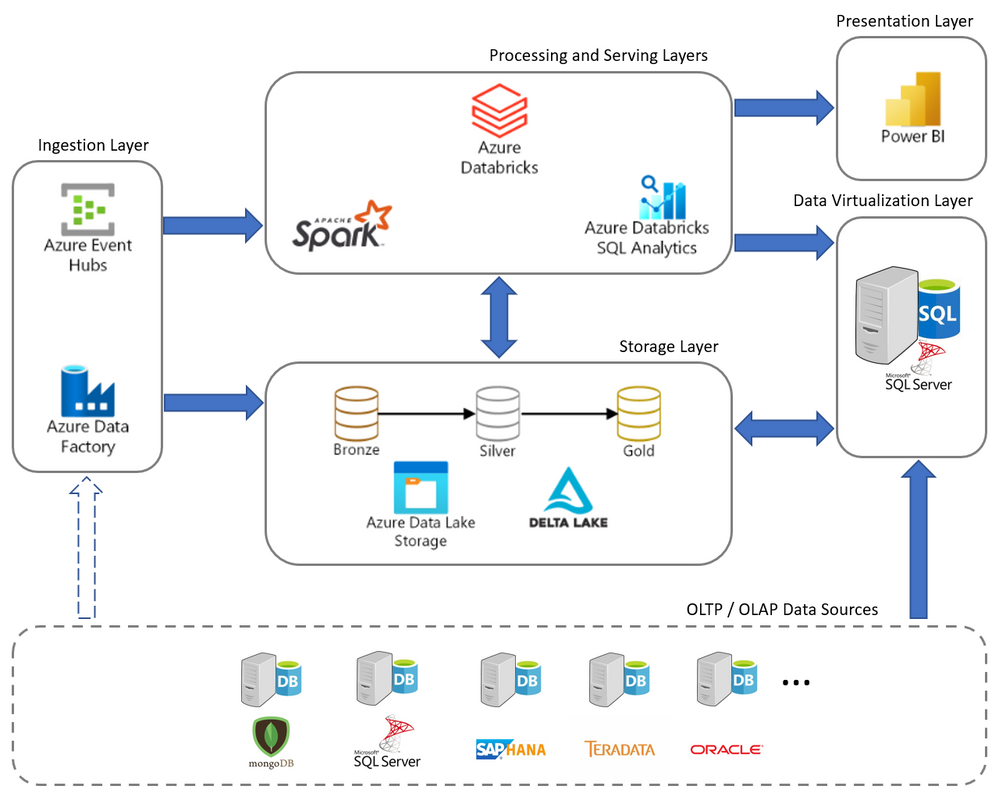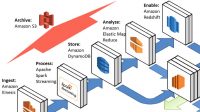Data has emerged as the lifeblood of enterprises across numerous industries in the current digital era. The ability to analyze and extract valuable insights from vast amounts of data is crucial for making informed business decisions. This is where Azure Databricks, a powerful cloud-based analytics platform, comes into play. In this article, we will explore the immense potential of Azure Databricks and how it can revolutionize your data analytics journey.
Introducing Azure Databricks: A Game-Changer for Data Analytics
Azure Databricks is a collaborative analytics platform that brings together Apache Spark and Microsoft Azure to empower data scientists, engineers, and analysts. It provides a unified workspace where teams can seamlessly collaborate, accelerating the entire data analytics lifecycle.
Unleashing the Power of Apache Spark
At the heart of Azure Databricks lies Apache Spark, an open-source, distributed computing system renowned for its speed, scalability, and versatility. With Spark’s advanced analytics capabilities, organizations can process massive datasets in real-time, enabling faster insights and informed decision-making.
Seamless Integration with Microsoft Azure
Azure Databricks offers seamless integration with Microsoft Azure, leveraging the full potential of Azure’s robust cloud infrastructure. By harnessing Azure’s scalable compute and storage capabilities, organizations can effortlessly handle the most demanding workloads, ensuring high performance and reliability.
Key Features and Benefits of Azure Databricks
Azure Databricks is packed with a wide range of features and benefits that make it an indispensable tool for data analytics. Let’s delve into some of its key highlights:
1. Unified Workspace for Enhanced Collaboration
With Azure Databricks, teams can work together in a unified workspace, fostering collaboration and knowledge sharing. Data scientists, engineers, and analysts can easily collaborate on projects, leverage each other’s expertise, and accelerate the development of data-driven solutions.
2. Scalable and Elastic Architecture
Azure Databricks offers a highly scalable and elastic architecture, allowing organizations to scale resources up or down based on their requirements. This flexibility ensures optimal resource utilization, cost-efficiency, and the ability to handle large-scale data processing tasks with ease.
3. Advanced Analytics Capabilities
By combining the power of Apache Spark and Azure, Azure Databricks provides advanced analytics capabilities that enable organizations to unlock the full potential of their data. With built-in libraries for machine learning, graph processing, and streaming analytics, data teams can build sophisticated models and extract valuable insights from their data.
4. Data Security and Compliance
Microsoft Azure is renowned for its robust security and compliance features, and Azure Databricks inherits these capabilities. Organizations can rest assured knowing that their data is protected through industry-leading encryption, role-based access control, and compliance with regulatory standards such as GDPR and HIPAA.
Real-World Applications of Azure Databricks
Azure Databricks finds applications across a wide range of industries, revolutionizing data analytics and driving innovation. Let’s explore a few real-world scenarios where Azure Databricks delivers exceptional value:
1. Financial Services
In the financial services sector, Azure Databricks helps organizations analyze vast amounts of transactional data in real-time. By leveraging machine learning algorithms, financial institutions can detect fraud, identify investment opportunities, and optimize risk management strategies.
2. Healthcare and Life Sciences
In healthcare and life sciences, Azure Databricks aids in genomics research, drug discovery, and personalized medicine. Researchers can analyze genomic data, identify patterns, and develop targeted therapies, leading to improved patient outcomes and advancements in medical science.
3. Retail and E-commerce
Retailers can leverage Azure Databricks to gain valuable insights into customer behavior, preferences, and trends. By analyzing large datasets, businesses can optimize pricing strategies, personalize customer experiences, and enhance supply chain management, ultimately driving growth and customer satisfaction.





